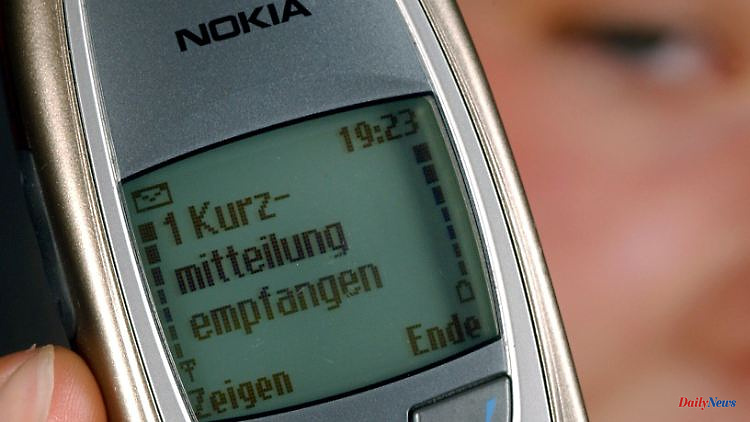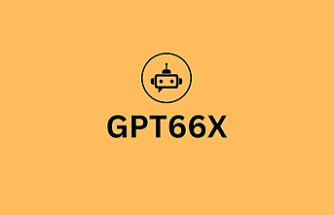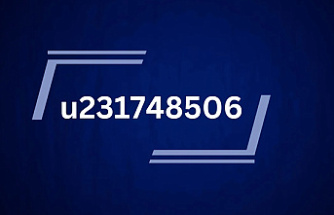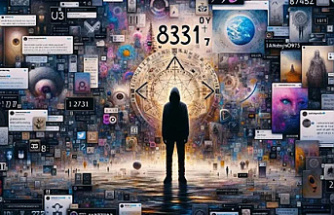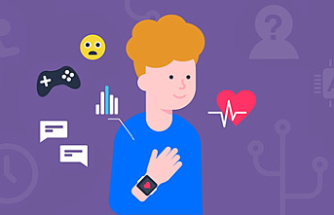30 years ago, a British computer sent the first SMS to a mobile phone, 20 years later almost 60 billion short messages are sent worldwide. Today, most people text using Whatsapp
The age of short messages (SMS) on mobile phones began 30 years ago with the greeting "Merry Christmas". Initially derided as a niche technology, the short message service conquered the world - only to be pushed out again by Whatsapp and other instant messaging services.
Like so many technical innovations, the Short Message Service (SMS) has many fathers. Historians remain controversial as to who first came up with the groundbreaking idea of using unused capacities in the mobile network to send and receive short messages. The experts agree that the first viable concept came in 1985 from Federal Post manager Friedhelm Hillebrand.
Initially, the German mobile communications pioneer was smiled at, mainly because he had limited the text message to a length of 160 characters for the sake of feasibility. The graduate electrical engineer was sure that this was enough to transport interesting messages: he argued that faxes and postcards usually do not use more characters.
The British software developer Neil Papworth was then able to send the world's first SMS on behalf of Vodafone. He tried out the new transmission technology 30 years ago (December 3, 1992) and sent the famous 14 letters "Merry Christmas" (Merry Christmas) from his computer to the mobile phone of Vodafone manager Richard Jarvis. At that time, there were no mobile phones that could have been used to send text messages.
The new service then started commercially 15 months later at the computer fair CeBIT 1994 in Hanover. From today's perspective, the prices were steep. Initially, the short messages cost 39 pfennigs each, but with the introduction of the euro, 19 cents became the standard price for an SMS. Discounters then attracted customers with prices of five or six cents per SMS.
The short message service developed into the industry's cash cow. As early as 1998, the threshold of one billion text messages sent in Germany was exceeded for the first time. After that it went on quickly. The record was reached in 2012 with almost 60 billion SMS. At Deutsche Telekom, SMS reached its all-time high at the turn of the year 2011/12. A total of 137.4 million text messages were sent on New Year's Eve and New Year's Day.
The SMS boom brought profits in the billions into the coffers of telecommunications providers. But it also changed the way young people in particular communicate with each other. Entering the texts was complicated compared to smartphones today: There was no keyboard with letters, only the digits from 0 to 9 as well as * and
For example, if you wanted to write the letter f, you had to press the 3 key three times in a row. These circumstances promoted an abbreviation jargon that some still use today for Whatsapp and Co. The letters "hdg" stand for "I like you" or GN8 for good night. akla? (Understood?)
In the meantime, only a few people use SMS for their private or professional communication. The number of text messages sent in Germany has fallen continuously every year since the peak in 2012 (59.8 billion) and reached a low of 7.0 billion in 2020. In 2021, however, the Federal Network Agency recorded a slight increase to 7.8 billion for the first time.
The industry draws hope from this: "SMS was an innovation 30 years ago, but it is not yet part of the history of technology: it will be with us for many years to come," says Tanja Richter, head of technology at Vodafone Germany. The slight plus has to do with the fact that the SMS is often used in applications such as online banking to send mobile transaction numbers. At Telefónica O2, the volume in this area has doubled in the past four years.
This is also confirmed by the Bitkom digital association: "SMS will continue to play a role in communication," says Bitkom CEO Bernhard Rohleder. "Not only for people who don't have a smartphone, but especially for authentication methods, such as payment services."
SMS will no longer produce billions in profits, however, because Internet-based messenger services have become established. They are completely free or only cost a small entry fee like Threema from Switzerland. In addition, messaging apps such as Whatsapp, ICQ, iMessage, Signal, Telegram, Viber or Wire can protect the content with encryption.
Network operators are now offering their own SMS successor, RCS (Rich Communication Services), which also offers encryption. So far, however, RCS has not been able to establish itself properly either in Germany or internationally. This is mainly due to the fact that RCS is only supported on Google's Android platform. Apple uses its own SMS successor for the iPhone with iMessage, which is not compatible with RCS.
This will not change in the foreseeable future. Apple CEO Tim Cook recently rejected the RCS standard at a conference: "I can't imagine our users asking us to put a lot of energy into it." Earlier, a conference attendee said that he would like to send a video from iPhone to his mother, who has an Android smartphone. "Buy your mother an iPhone," Cook replied laconically.
The SMS was in the era before Whatsapp
The word "simsen" for sending and receiving text messages was included in the dictionary in 2004. With her intensive use of SMS, the chancellor at the time also accepted the risk of being bugged. SMS are still not encrypted today. When, in 2013, the suspicion that Merkel was being spied on by the US secret services arose as a result of the revelations by whistleblower Edward Snowden, she simply said that spying out among friends is not possible at all.

